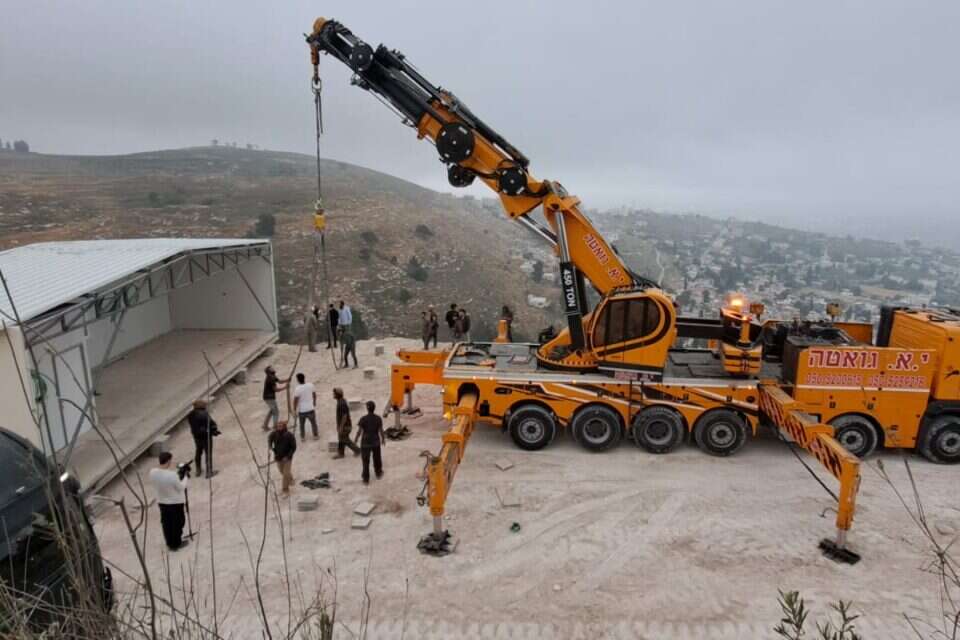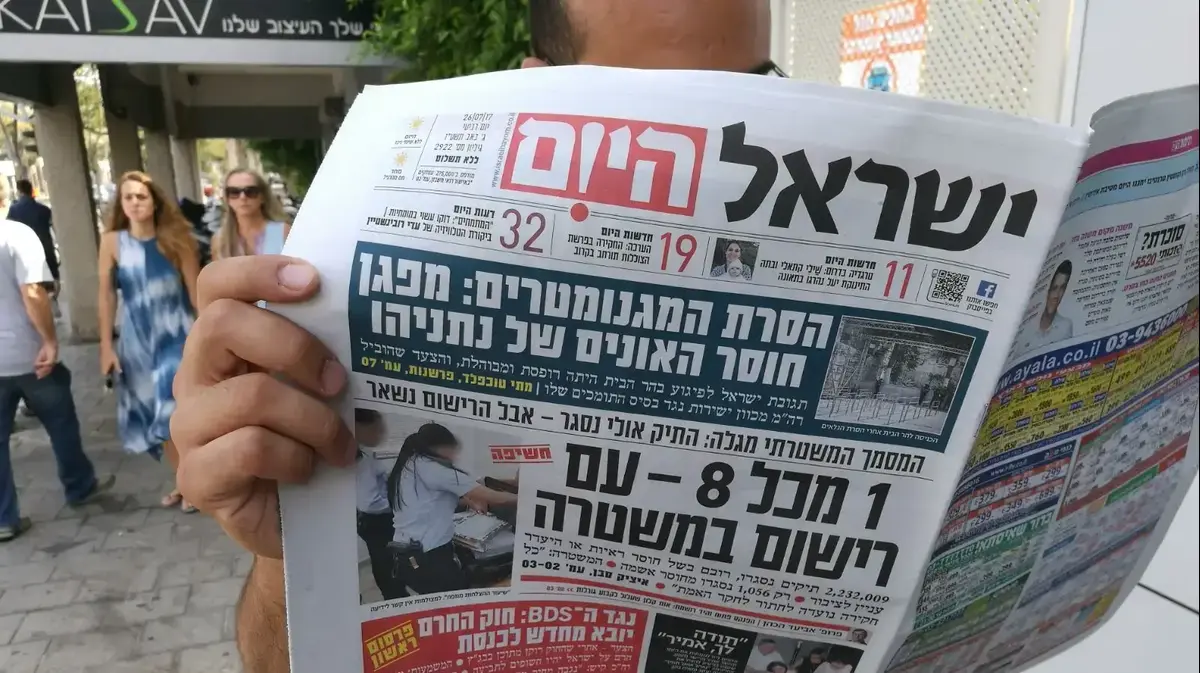Last Monday, after the decision of the political echelon that the Homesh yeshiva could be reestablished subject to its relocation to state land, a mobile structure that was quickly erected was brought to the area of the settlement that was destroyed during the disengagement.
The pictures were drab looking, unusual celebrations were not recorded, fireworks were not set into the sky, and the climactic moment included a modest ceremony of setting a mezuzah in the fresh building and some blessings customary at such events. Media coverage of the event was also limited. It would be an exaggeration to say that the reestablishment of the Homesh was ignored, but apart from dry news reports, a few commentaries, and routine American condemnation, the media and the political system also responded to the development of the Homesh settlement with drowsiness and resignation.
But the implications and lessons learned from the return of the settlers to the site are something else entirely. The significance of placing the new yeshiva building in the community encapsulates a fascinating story whose moral exceeds the scope of the minutes devoted to it in the news broadcasts.
Almost 18 years have passed since the summer of 2005, when the residents of Homesh were evacuated and their settlement destroyed as part of the Disengagement, along with Gush Katif and three other communities in Samaria. The evacuees tore off their clothes as a sign of mourning, chanted Kaddish and blessed, "Blessed is the Dayan of truth." The situation seemed lost to them. The evacuation was not only completed quickly and thoroughly, but also won public support: the Kadima party, founded by supporters of the evacuation, who also promised the continued destruction of Jewish communities, won the elections lightly. The process was seemingly irreversible. Those who refused to accept the situation and called for the reestablishment of the Pentateuch were perceived as sleepwalkers, delusions and hallucinations. And yet, with unimaginable stubbornness, when no one was interested in their journey to return home, the Homesh settlers continued to believe for years that the illusion was actually the evacuation itself, that the falsification and uselessness of destroying the settlement were the reason for creating the illusion, and therefore the story was not really over. They actually believed that this dead person could be resurrected.
In the face of the cynicism, contempt and disregard of most of the sector and camp with which they belong, with the images of the evacuation etched in their consciousness, the people of Homesh believed and did not abandon the practical ways – they filed High Court cases, established lobbies, did not stop nagging public representatives and mobilized them to struggles, held repeated aliyahs to the site and normalized the return to their dead settlement in the consciousness of more and more people.
If it doesn't happen today, then it will happen the day after tomorrow, and if they don't return next year, they'll be back in two years, they claimed. They won neither public sympathy nor huge budgets, but just as they sang when bulldozers came to their homes in 2005, they are not afraid of a long road.
Chumash is a story that demonstrates how determination, perseverance and patience can carve into the rock of opacity even if it means waiting. An achievement that shows that goals that seem lost today can be realized tomorrow, that sometimes driving on a solid path can pay off even if it seems on the surface that it is driving against the direction of traffic. The picture of victory may be gray and modest, but a small mobile structure is a lesson on a building with deep foundations and roots that can be planted in the ground.
Wrong? We'll fix it! If you find a mistake in the article, please share with us









